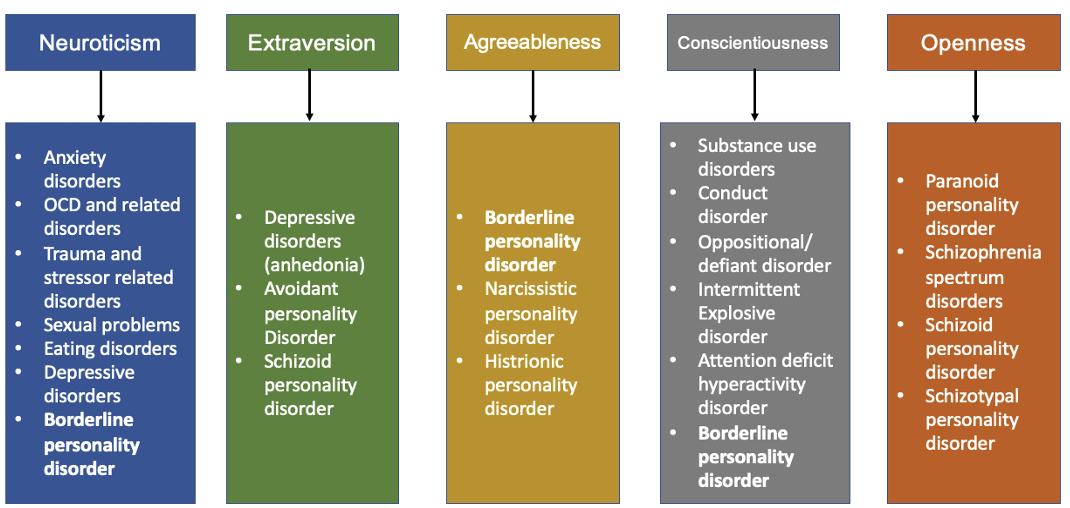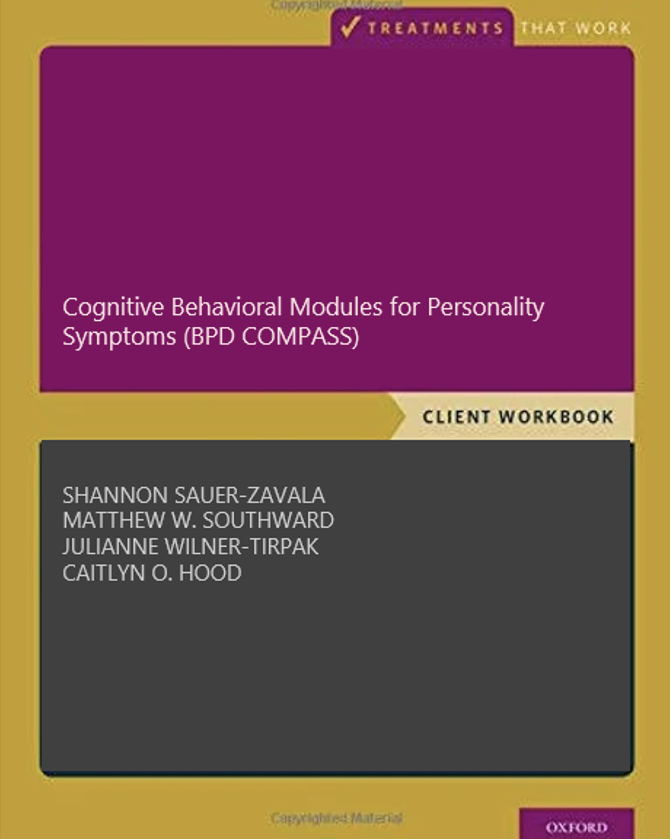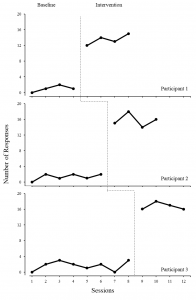Research
The primary goal of our research is to improve psychological care in order to relieve the suffering of individuals with common mental health conditions. This goal is achieved via basic psychopathological research to identify the processes that drive symptom expression, along with treatment development/testing to ensure that our interventions indeed address the most potent mechanistic targets. We use a range of complementary methodological approaches (e.g., surveys, laboratory-based experiments, clinic-based treatment studies, and real-time monitoring) to better understand how common disorders develop and how to best treat them. In particular, we are interested in establishing evidence-based way to personalize treatment delivery to optimize outcomes. Across our broad research goals, explicit attention is paid to understudied and/or stigmatized conditions such as borderline personality disorder, interpersonal difficulties, and anger.
Dr. Sauer-Zavala's Summary of Our Work
In September 2023, Dr. Sauer-Zavala gave a keynote address at the Cambridge University Transdiagnostic Conference in Cambridge, UK. This talk provides a nice over of the work we're doing to improve treatment of internalizing disorders and BPD by directly targeting mechanisms that maintain symptoms.
Identifying Transdiagnostic Mechanisms
 Common mental health conditions are apt to co-occur. Despite high rates of comorbidity, prevailing treatment approaches have traditionally focused on a single diagnosis (e.g., panic disorder, social anxiety). Unfortunately, discrete interventions for each clinical problem do not offer comprehensive care for patients who endorse multiple areas of dysfunction, perhaps leading to suboptimal outcomes. Additionally, the proliferation of disorder-focused manuals places a costly, time-intensive training burden on therapists, likely disincentivizing the provision of empirically-supported interventions in routine practice. In response to these issues, the TIPS program seeks to identify transdiagnostic psychopathological mechanisms that drive the expression of a range of clinical targets and can become the focus of care, rather than individually addressing each symptom/problem. In this approach to understanding psychopathology, heterogeneity in the expression of symptoms/problems can be regarded as surface-level variation in the manifestation of shared core processes. In particular, we are interested in higher-order personality-based mechanisms as a way to succinctly account for various forms of psychopathology and developing treatment modules to target personality domains..
Common mental health conditions are apt to co-occur. Despite high rates of comorbidity, prevailing treatment approaches have traditionally focused on a single diagnosis (e.g., panic disorder, social anxiety). Unfortunately, discrete interventions for each clinical problem do not offer comprehensive care for patients who endorse multiple areas of dysfunction, perhaps leading to suboptimal outcomes. Additionally, the proliferation of disorder-focused manuals places a costly, time-intensive training burden on therapists, likely disincentivizing the provision of empirically-supported interventions in routine practice. In response to these issues, the TIPS program seeks to identify transdiagnostic psychopathological mechanisms that drive the expression of a range of clinical targets and can become the focus of care, rather than individually addressing each symptom/problem. In this approach to understanding psychopathology, heterogeneity in the expression of symptoms/problems can be regarded as surface-level variation in the manifestation of shared core processes. In particular, we are interested in higher-order personality-based mechanisms as a way to succinctly account for various forms of psychopathology and developing treatment modules to target personality domains..
Select Publications
Semcho, S. A., Southward, M. W., Stumpp, N. E., MacLean, D. L., Wolitzky-Taylor, K. B., & Sauer-Zavala, S. (2023). Aversive reactivity: A transdiagnostic functional bridge between neuroticism and avoidant behavioral coping. Journal of Emotion and Psychopathology. PDF
Treatment Development and Efficacy Testing
 Following the identification of transdiagnostic psychopathological mechanisms, the TIPS program aims to develop and test potent interventions that directly engage these targets and can be applied across diagnostic boundaries. This research includes large-scale randomized trials comparing transdiagnostic, mechanism-based approaches to control conditions (i.e., waitlist, traditional disorder-specific approaches). Additionally, this work includes smaller scale studies aimed at ensuring that each component included in a treatment package indeed engages the core processes that drive symptoms; single-case experimental design is often utilized in this capacity. Dr. Sauer-Zavala is a co-developer of the Unified Protocol, a transdiagnostic intervention for internalizing disorders (e.g., anxiety, depressive and related disorders. Recently, our tream developed a short-term personality-focused intervention for borderline personality disorder called BPD Compass. We found that 18 sessions of BPD Compass leads to large improvements in BPD and comorbid symptoms (anxiety, depression, eating pathology, PTSD).
Following the identification of transdiagnostic psychopathological mechanisms, the TIPS program aims to develop and test potent interventions that directly engage these targets and can be applied across diagnostic boundaries. This research includes large-scale randomized trials comparing transdiagnostic, mechanism-based approaches to control conditions (i.e., waitlist, traditional disorder-specific approaches). Additionally, this work includes smaller scale studies aimed at ensuring that each component included in a treatment package indeed engages the core processes that drive symptoms; single-case experimental design is often utilized in this capacity. Dr. Sauer-Zavala is a co-developer of the Unified Protocol, a transdiagnostic intervention for internalizing disorders (e.g., anxiety, depressive and related disorders. Recently, our tream developed a short-term personality-focused intervention for borderline personality disorder called BPD Compass. We found that 18 sessions of BPD Compass leads to large improvements in BPD and comorbid symptoms (anxiety, depression, eating pathology, PTSD).
Select Publications
Sauer-Zavala, S., Southward, M. W., Hood, C. O., Elhusseini, S., Fruhbauerova, M., Stumpp, N. E., & Semcho, S. A. (2023). Conceptual development and case data for a modular, personality-based treatment for borderline personality disorder. Personality Disorders: Theory, Research, & Treatment. PDF
Sauer-Zavala, S., Southward, M.W., Fruhbauerova, M., Semcho, S.A., Stumpp, N.E., Hood, C., Smith, M., Elhusseini, S., Cravens, L. (in press). BPD Compass: A randomized controlled trial of a short-term, personality-based treatment for borderline personality disorder. Personality Disorders: Theory, Research, & Treatment.
Sauer-Zavala, S., Fournier, J., Jarvi Steele, S., Woods, B., Wang, M., Farchione, T., & Barlow, D. (2021). Does the unified protocol really change neuroticism? Results from a randomized trial. Psychological Medicine, 1-10. PDF
Barlow, D. H., Farchione, T. J., Bullis, J. R., Gallagher, M. W., Latin, H., Sauer-Zavala, S., …. Cassiello-Robbins, C. (2017). The Unified Protocol for Transdiagnostic Treatment of Emotional Disorders compared to diagnosis-specific protocols for anxiety disorders: A randomized clinical trial. JAMA Psychiatry, 74, 875-884. PDF
Personalizing Treatment: Increasing Potency and Efficiency
 Transdiagnostic, mechanism-driven treatment is a step forward in improving care for common mental health conditions, though it may be possible to further enhance the potency and efficiency of our interventions. Given that transdiagnostic treatments often consist of multiple components designed to target the same core process, it is possible that some skills may be more or less robust at mechanism engagement for a particular patient. Thus, an important aim of the TIPS program is to identify best practices for personalizing care so that individual patients may reap the greatest benefit. Although some of this work has been conducted in our research laboratory, we strive to work with providers in community practice to increase the likelihood that our treatment innovations are feasible to implement in the real-world.
Transdiagnostic, mechanism-driven treatment is a step forward in improving care for common mental health conditions, though it may be possible to further enhance the potency and efficiency of our interventions. Given that transdiagnostic treatments often consist of multiple components designed to target the same core process, it is possible that some skills may be more or less robust at mechanism engagement for a particular patient. Thus, an important aim of the TIPS program is to identify best practices for personalizing care so that individual patients may reap the greatest benefit. Although some of this work has been conducted in our research laboratory, we strive to work with providers in community practice to increase the likelihood that our treatment innovations are feasible to implement in the real-world.
Select Publications
Sauer-Zavala, S., Southward, M. W., Semcho, S. A., Stumpp, N. E., Hood, C. O., Garlock, A., & Urs, A. (2022). A SMART approach to personalized care: Preliminary data on how to select and sequence skills in transdiagnostic CBT. Cognitive Behaviour Therapy. PDF
Sauer-Zavala, S., Southward, M.W., Terrill, D., Semcho, S.A., & Stumpp, N.E. (inpress). Core mechanism engagement as an evidence-based approach to personalized treatment termination. Psychotherapy Research.
Sauer-Zavala, S., Cassiello-Robbins, C., Ametaj, A.A., Wilner, J.W., & Pagan, D.S. (2019). Transdiagnostic Treatment Personalization: Prioritizing Unified Protocol treatment skills to capitalize on strengths or compensate for weaknesses. Behavior Modification. PDF

